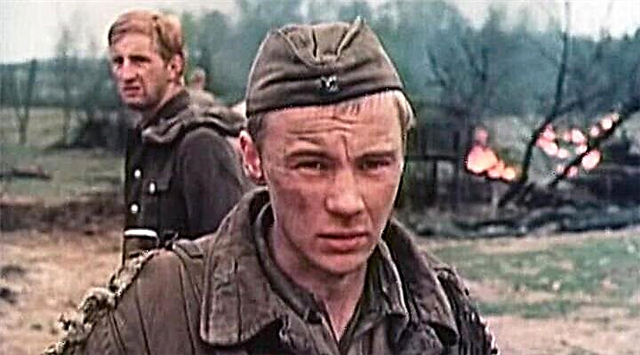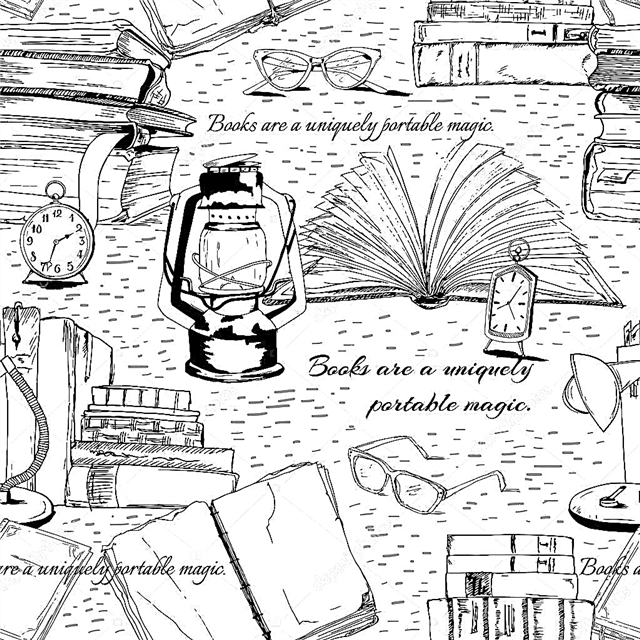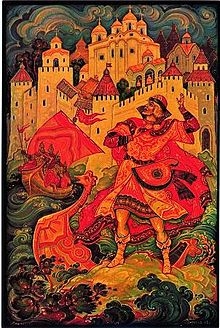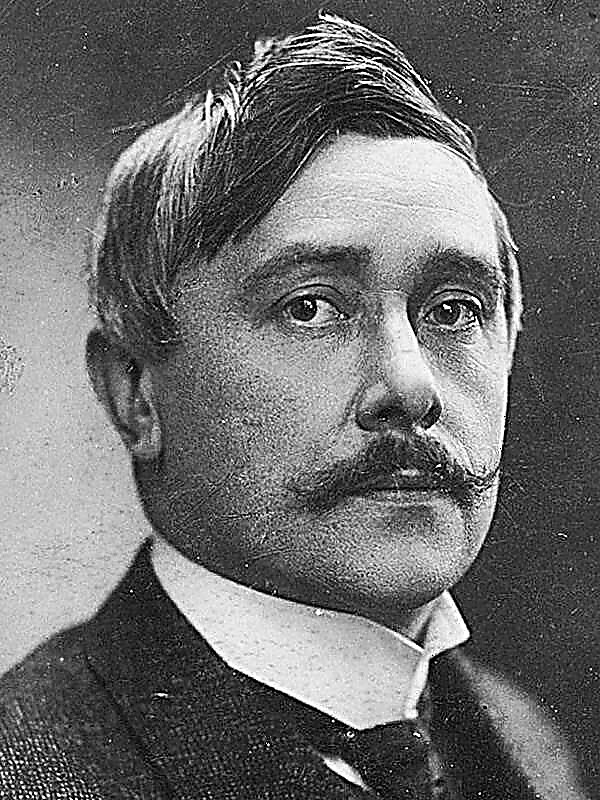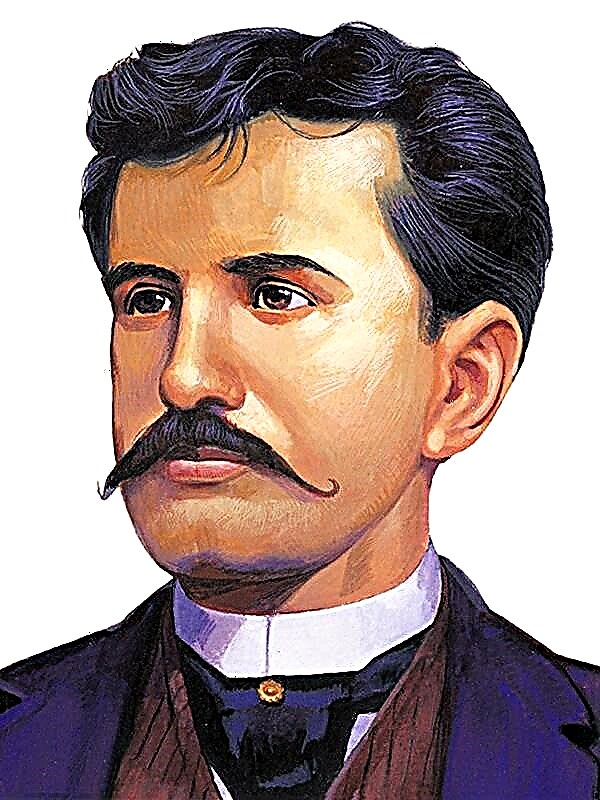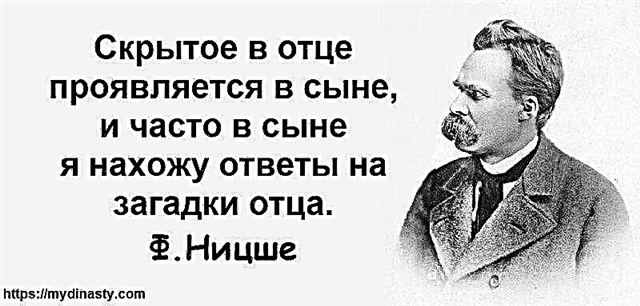: A young German rides from the front on vacation. In his hometown, he meets his love and marries. Now he knows how terrible any war is and wants to make the most of his time at home to live.
April. In the Russian village are German soldiers. Snow is melting, the bodies of those killed in winter peep out of the mud mixed with water. Four Russian partisans deliver the company: at dawn the Germans must shoot them. Among them is a young woman. Steinbrenner, a blond 19-year-old boy with the face of a Gothic angel, a Nazi for all two hundred, wants to rape her, but he does not succeed. Before being shot, a woman curses them and promises that their children will take revenge on the Germans.
The front line moves every day. Some of the soldiers realize that the war is lost. Now they look at everything differently. One soldier notices that they are ruining a foreign country:
It’s amazing how you begin to understand others when you’ll help yourself ... And while you live well, nothing of the kind comes to your mind!
Young front-line soldier Ernst Graber receives a long-awaited vacation for three weeks: he was not at home for two years. Under pain of death, soldiers are forbidden to talk about affairs at the front, talk of the defeat of Germany is punishable by execution. Having reached his hometown, Graeber with horror discovers that the German cities are bombing. His home was ruined, like so many others. Ernst did not warn his parents about the vacation. Now he is trying unsuccessfully to track them down. Parents are not listed among the living or among the dead.
Greber hopes to learn something from a friend of the doctor, but only his daughter Elizabeth meets. The doctor himself is sitting in a concentration camp. A loyal Nazi with her young daughter, who tirelessly watches Elizabeth, has settled in his house. The girl works at the factory - she sews overcoats to the front, hoping so to help her father.
The bombing is repeated almost every three days. Greber lives in the barracks, but in the evenings he sees Elizabeth. His vacation passes, Ernst cannot find his parents, so he decides to take advantage of the illusion of a peaceful life - life in the rear.
Ernst meets his classmate Binding, who now occupies a position under the Nazi leadership. The guy is by no means a fanatic, but on occasion takes advantage of his position: the teacher, by whose grace Binding had once flown out of school, he planted in a concentration camp for six months. Women from high society crawl in front of the functionary on their knees, hoping to rescue their husbands from concentration camps. Binding begins to supply Ernst with good food, alcohol and cigarettes, which in wartime is a shortage for ordinary citizens.
In the evening he comes to Elizabeth with vodka, which was given by a classmate. He talks about the truth:
... if everyone did not certainly try to convince the other of their truth, people, perhaps, would be less likely to fight.
Elizabeth shows her roommate's room. There is a huge portrait of Hitler. "The cult of the dictator easily turned into a religion." Then they go for a walk. The city is like an endless morgue.
The front-guard comes back to Binding. His guest was a drunken smitten by a Gestapo man. Ernst notices how calmly Binding watches the sparrows:
Greber ‹...› suddenly realized how hopelessly all justice and compassion are doomed: they are destined to forever break up on indifference, selfishness and fear!
After some time, the Gestapo is sent for interrogation. Ernst leaves after him and pursues the Nazi along a deserted street. He wonders if he can kill the Gestapo. How many people can be saved this way! Suddenly a woman comes out of Greber's stupor. He understands that he will not kill the Nazi.
Ernst, at the request of a war veteran, comes to their teacher.Greber shares his thoughts: the Germans need to lose the war in order to put an end to “murder, slavery, concentration camps, ... mass destruction and inhuman atrocities.” Will he be an accomplice, knowing all this and going back to the front? The teacher says that everyone should answer this question himself.
Greber and Elizabeth have dinner at a restaurant. The bombing begins. Several people die. Ernst drags a bottle from the open cellar: "The Ten Commandments - not for the military." On the street they see a tree almost torn from the ground, covered with flowers. “Spring is now for the trees, that’s all. The rest does not concern them. ” On this night, young people become lovers.
Ernst makes an offer to Elizabeth. As a military wife she will be entitled to allowance - so he can help her beloved girl. He is a front-line soldier, and they will be registered quickly without any problems. For a moment, Ernst feels complete helplessness:
What only they do with us ... We are young, we must be happy and not parted. What do we care about wars.
After reflection, Elizabeth agrees.
Greber comes to the hospital to a friend who lost his leg in the war. People with disabilities do not welcome Ernst, but a healthy vacationer understands them: “Never argue with someone who has lost an arm or leg - he will always be right.”
During the next bombardment, Greber sees a girl of about five, clutching a baby to her chest. She does not go to the shelter. A moment after the blast wave, Ernst sees her dead, pierced by a rod from an iron railing. The baby, most likely, was thrown off somewhere by a furious flurry. After this raid on the house of Elizabeth flames spread, the house collapses floor after floor.
They spend the night near the house of teacher Greber. In the morning, Ernst asks him for shelter. He warns that he is hiding a Jew. If a couple is found in such a place, they will not be greeted. Teacher says it’s worth keeping faith. When you are disappointed in your country, you need to believe in peace. A solar eclipse does not carry an eternal night.
... there was no tyranny in the world that would not end.
Greber learns about the death of Binding: a bomb fell into his house. Ernst takes away part of the food functionary. Then Greber goes to the teacher. A young man is met by a Jew, and the front-line soldier shares with him the reserves of Binding. They are talking. The brother, two sisters, father, wife and child of a Jew died in a concentration camp. His fingers are mutilated, they have no nails.
Soon teachers arrest the Gestapo.
Graber learns that his parents are alive. In the early days of searches on the door with ads, he left a note that he was looking for them. Now he finds a letter there: his parents have been evacuated. A letter comes from the Gestapo for Elizabeth: she needs to take away the ashes of her father, he died in a concentration camp. Greber decides not to say anything to his wife; he leaves a box of ashes in the church garden at the grave.
Ernst asks Elizabeth not to escort him to the station - it's too painful. He still remembers what his mother, seeing off his last time, looked like. The wife agrees. However, when the train departs, Greber sees Elizabeth in the crowd. He breaks to the window, but the place is not inferior to another front-line soldier, saying goodbye to his wife. Finally, Elizabeth disappears from sight.
Returning to the front, Greber for a moment feels that he did not go on vacation at all. It was as if he dreamed of returning to his homeland. Many soldiers from his company died. Russians are constantly advancing. Recruits are sent to the front who do not understand anything in the military affairs of youths who die one after another.
Grebers are assigned to guard four Russians. There is a suspicion that they are partisans. They are enclosed in a secure basement. One of the Russians, an old man, in broken German thanks him for his kind attitude and calls to go with them. The shelling begins. Steinbrenner appears: he must leave, and he offers to shoot the Russians. Greber refuses. A quarrel ensues between them, and Ernst kills the enemy. Then he releases the prisoners and drops his weapon. The old man picks it up and, leaving, shoots at the German.Greber's eyes close.



